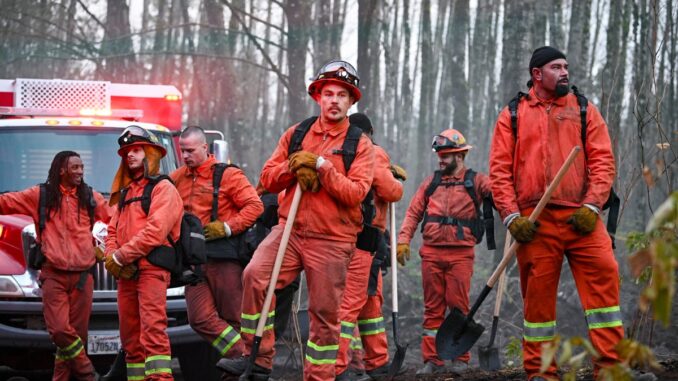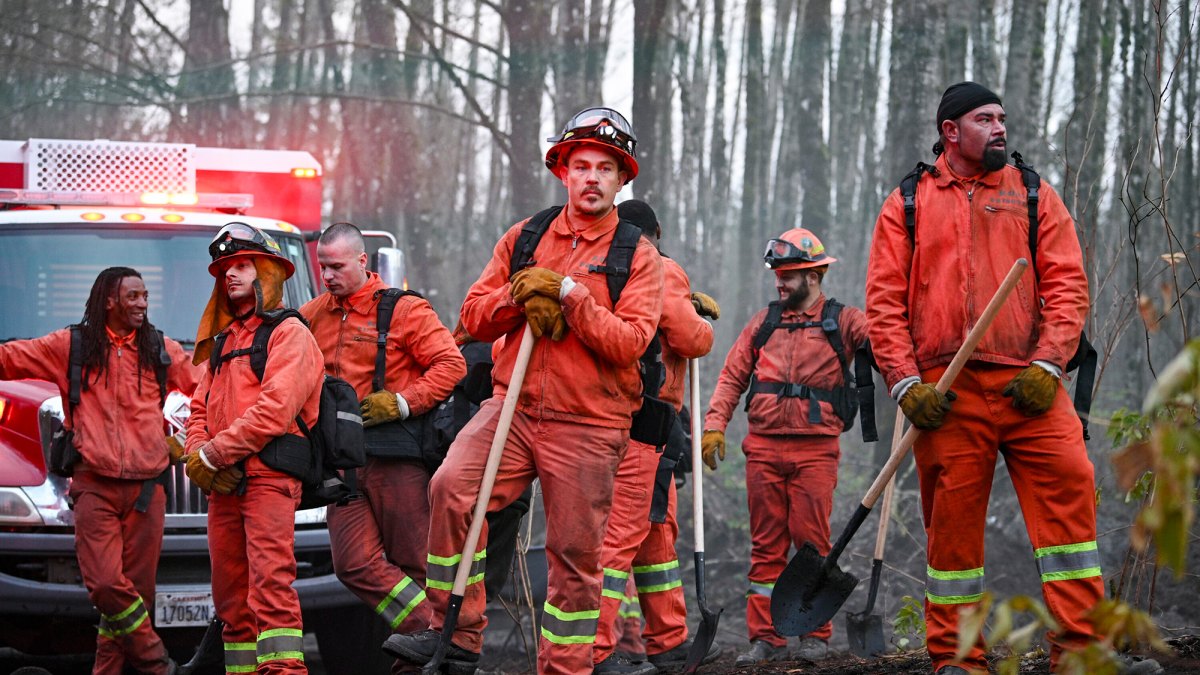
The Unburnt Bridge: Fire Country Fans Shocked by Sheriff Country Connections (md11)
The world of television fandoms is a delicate ecosystem, a vibrant landscape built on shared narratives, beloved characters, and an unspoken contract between creators and their audience. When that contract is unexpectedly altered, even by a seemingly minor detail, the tremors can be seismic. Such was the case with the recent reveal in Fire Country‘s “md11” episode, a moment that sent a collective gasp through its dedicated fanbase, not due to a fire-induced cliffhanger, but to a subtle yet significant connection to the hitherto unknown “Sheriff Country.” The shock wasn’t just about a new piece of information; it was about the potential disruption of a carefully cultivated narrative universe, a sudden expansion that left many wondering if their beloved Edgewater was about to become part of a larger, perhaps less focused, tapestry.
Fire Country, since its inception, has meticulously crafted a self-contained world. Its appeal lies in its gritty authenticity, its focus on the raw power of nature and human redemption, all set against the unique backdrop of California’s fire season and inmate fire crews. Fans have invested deeply in the complex web of relationships in Edgewater – the fractured Leone family, the struggles of Bode Donovan, the camaraderie and tensions within Station 42. The show’s narrative rhythm is distinct: high-stakes emergencies interspersed with profound emotional drama, all rooted in the specific challenges of fighting wildfires. This enclosed, intense focus is precisely what has endeared it to its audience. Edgewater felt like a real place, a place with its own internal logic, its own set of rules, and its own dangers that were primarily, though not exclusively, borne of fire.
Then came “md11.” The specific detail itself might seem innocuous to an outsider: a fleeting mention, a background character’s affiliation, or perhaps a jurisdiction overlap that hinted at a parallel, law-enforcement-focused series called “Sheriff Country.” But for the loyal viewers, it was like a sudden, unexpected spark in a parched forest. It wasn’t the nature of the connection that was alarming, but its existence. The implied shared universe, the sudden realization that Edgewater wasn’t as isolated as they thought, ignited a flurry of questions and, more prominently, a sense of disorientation.
The shock stemmed from several crucial points of disruption. Firstly, it challenged the show’s established genre identity. Fire Country is a rescue drama, a family saga, a story of second chances. Introducing a parallel police procedural, even tangentially, risks blurring those lines. Will the focus shift? Will the unique flavor of the Cal Fire world be diluted by the demands of a broader, more interconnected universe? Fans feared that the singular intensity they loved could be diffused, its emotional core potentially overshadowed by the need to service crossover narratives or new character introductions.
Secondly, and perhaps more profoundly, the connection threatened the integrity of the characters and their backstories. Viewers have invested countless hours piecing together the trauma, resilience, and relationships of the Edgewater residents. The revelation that their lives might be intertwined with characters or events from “Sheriff Country” could, in the worst-case scenario, retroactively alter established canon or introduce elements that feel forced or inorganic. It raises the specter of “retconning” – retroactive continuity changes – that can undermine fan investment and create a sense of narrative instability. Will Bode’s past now involve encounters with a Sheriff Country deputy? Will Vince’s jurisdiction now extend to policing matters? These questions, even if unfounded, create anxiety.
Finally, there’s the psychological aspect of fan ownership. Viewers feel a sense of proprietorship over the stories they love. They have theories, expectations, and a clear vision of what their show is and isn’t. To suddenly introduce an external element, one that wasn’t part of the original promise, can feel like a violation of that implicit trust. It’s akin to finding a new, unexpected wing on a familiar house; while it might offer new rooms, it irrevocably changes the original structure and feel.
The aftermath of “md11” was a fascinating study in digital democracy. Online forums, Twitter feeds, and Reddit threads exploded with a mix of bewildered analyses, impassioned protests, and cautious optimism. Some fans, the minority, welcomed the potential expansion, envisioning exciting crossover events and a richer world. But the louder chorus was one of concern, a plea for the show to remain true to its roots, to protect the distinct identity that drew them in.
As the dust settles, the “Sheriff Country Connections” of “md11” serve as a potent reminder of the delicate balance creators must strike. Expanding a narrative universe offers tantalizing possibilities for longevity and new storytelling avenues. Yet, it also carries the inherent risk of alienating a core audience deeply attached to the original, focused vision. For Fire Country, the challenge now lies in weaving this new thread into its existing tapestry with such skill and subtlety that it enhances, rather than unravels, the vibrant, fire-forged world its fans have come to cherish. The unburnt bridge to “Sheriff Country” now stands, and whether it leads to a thrilling new chapter or a narrative misstep remains the most burning question of all.

